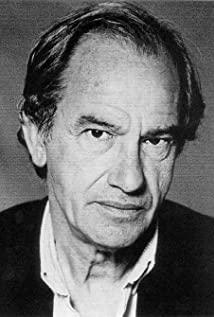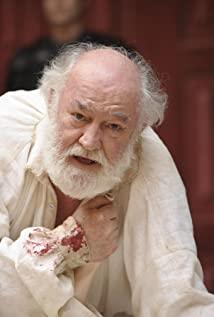Twenty years later, Goya, the "immortal painter of Spain", is completely deaf. He can't hear people's voices, dogs bark, but he does hear the constant whining of the Spanish soil. And he was silent. He quietly watched it happen, watched it end, watched the cruel God's executioners openly brutal in God's name, watched the ruthless iron hoofs trod across the land of Spain, watched the wounds of God's people and the revolution Bleeding, watching the unconscious crowd cheer enthusiastically.
The absurdity considered by existentialism is truly embodied in this world.
In the face of the absurd and absurd world, Goya's efforts to save it are completely ineffective. He can only quietly describe the absurd and absurd world with his brush. In the past 20 years, a ghost has been trapped in his heart, making him dark, but these 20 years are the peak period of his creation.
The absurd and absurd supporting roles
In "Spirit of Goya", Goya is a ghost who often hides behind the screen. Whether it is intentional or unintentional by the director, the supporting role of Lorenzo has become the protagonist. He wears a black robe, Absorbed the light of all the protagonists.
The story begins with him and ends with him, who is the center of the film. The beautiful maiden sets off his ugliness, the innocent baby sets off his cunning, the stoic father sets off his cowardice, and the innocent daughter sets off his ruthlessness. The absurd world chose the absurd Lorenzo, which cast the light of the stage on Lorenzo, and Lorenzo began to dance.
Absurd Act 1:
Spain in 1792, the commotion in neighboring countries caused anxiety in the Catholic Church. Terror once again spread in people's hearts. Poor Ines was imprisoned on trumped-up charges for not eating pork, and was tortured to extract a confession. Ines' father invites Lawrence into his home and makes him perform an absurd scene.
Tortured by his own punishment, he can only admit that he was only an orangutan who infiltrated the church posing as an adult. In such a world, who is not an orangutan?
The second act of the absurd:
After Lawrence fled Spain, the Church still controlled Spain, and Ines was in prison. When Lawrence came back, everything changed, he exclaimed, since reading Voltaire, Rousseau, he has changed, these Catholic churches are evil, only revolution can bring light to Spain.
He convicted the bishop and sentenced him to death. He tried to consolidate the organization with the most rigorous means before, but now he is destroying it with the most brutal methods.
Absurd Act Three:
After Napoleon's defeat, Lorenzo flees in a panic and is eventually arrested. The bishop pronounced him and executed before him. He once again accepted the subversion of this fate.
As existentialism says, existence is accidental, there is no essence that precedes existence, existence has no reason, and existence is absurd. No one exists in control, and no one can control the world. Lorenzo's fate is the real embodiment of this existentialist absurdity.
Others are hell
Look at Lorenzo's entanglements with the other protagonists, and he clearly sees others as hell. Sartre believes that "others are hell". In Sartre's view, the other is an existing object, which is different from the thing. He not only exists, but also poses a threat to me, because he is a free object. In his "look" he might have turned me into a thing. In this case, there are only two ways for a person to be freed from the eyes of others or the hell of others: either willingly be someone else's thing, or make others his own thing and manipulate others. Lawrence chose the latter.
For Ines, from the curtain of love to possession, from possession to abandonment. Lawrence sees it as a thing. The beauty of Yisi made Lawrence's heart move, and in prison, he raped her in the name of praying for a mattress. He doesn't think about her freedom, just a tool. When forced to rescue Ines, he found that the size of the church made him powerless. Twenty years later, when Ines was old and ugly, almost a mad woman, he ruthlessly abandoned him in the lunatic asylum. Ines is a thing to him.
For his own daughter, for him, it is also a burden and a burden to his personal reputation. He wasn't too shocked when he learned that there was still this illegitimate daughter. He went quickly and decisively to meet his daughter, who was already a prostitute, and persuaded her to leave the "brothel" Spain. After this failed, he directly used executive orders to forcibly evict prostitutes. There is no family relationship at all, this world is the relationship between people and things, not the relationship between people.
The so-called meaning
of the absurd In the absurd world, people are reduced to tools and things to others. Such a world is what some existentialists think of, a world that is absurd and absurd. Faced with such absurdity, religiousists seek to complete their beliefs, while activists realize the meaninglessness of life, and actively seek meaning and give life to meaning.
Can not change, can only watch, can only follow, this is the behavior of the real protagonist Goya. He put meaning in his paintings and created countless paintings. Later generations saw the man hiding behind history like a ghost from the paintings.
The ending of the film is also fascinating. Lorenzo's body was advancing on the cart, Ines was holding the prostitute's baby and holding his hand, looking back and laughing, Goya followed slowly, and a group of children surrounded them happily singing beautiful songs. In this world, I don't know who is at the center of who is who, who is who is sad and who is who, who is who is in the future, who is watching, who is moving forward for who, who is there for whom.
In fact, why care who exists for whom? If you find the "who" or "thing" you entrust, life will be like a dark ghost, and it will also emit light that shocks the absurd world.
View more about Goya's Ghosts reviews











